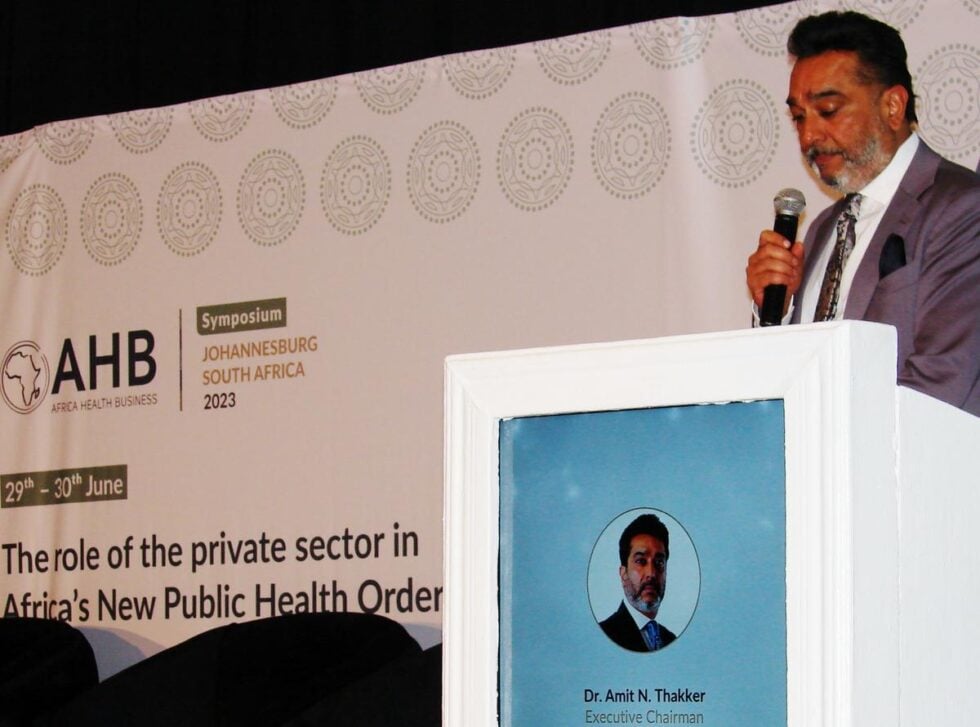
Discussing the private sector's contribution to the building blocks of health systems on the continent, Thakker was able to show that the sector had already been responsible for 70% of access to essential medicines, 60% of health information systems – and growing rapidly with the support of digitalisation – 30% in each of leadership and governance, service delivery and financing.
But, he indicated, the sector still had a greater role to play jointly with its public counterpart.
“Not only do we need more money for health, but we also need more health for the money! When we start improving efficiencies, we can produce much more health with the same amount of money that’s been allocated to health in African countries,” Thakker added, stressing the importance of leadership and governance in this regard.
“We can improve up to the tune of 40% more health if we just improve the leadership and governance. It takes two to tango! Leadership and governance is not a public health issue but a public and private health issue!
“If there is waste and corruption,” he continued, “it is both the public and private sector playing in that space. So we must manage and contain that because together we can do much more. In countries in Africa where both the public and private sectors work together in harmony, we produce much better health. We’ve seen this during the pandemic outbreak when we look at health indicators improving in Africa, and when measuring progress.”
On financing, said Thakker, much more had to be done, pointing specifically to health cover and the fact that only 2% to 4, 5% of the continent’s population have health insurance. As is now happening to a large extent in South Africa in terms of National Health Insurance (NHI) deliberations – “and it’s no different in Ghana or for Rwanda or for Kenya for that matter” – a strong national health insurance team is needed to ensure cover for all Africans for their basic health services: “We shouldn’t create financial barriers in order to create healthcare!.
Concluding on the issue of the health workforce, the three objectives, said Thakker, must be to attract, train and retain.
“Qualified health workers leaving Africa for greener pastures we must prevent because that is weakening what we want to do. And we shouldn’t stop training! We are really behind on this – someone told me that it would take 400 years to achieve the required ratio of qualified laboratory workers, for example, if we continue to train the way we are training now.
“We are training too few and the gap is widening! We need to find more innovative ways to breach that divide.”